


My complete unit on teaching first sounds/letter sounds is here! This is the pack I use at the beginning of the year in kindergarten and first grade.
I am excited to share this curriculum with you, and I posted a huge pack of FREEBIES for you to try with your students too.
I also offer these printable activities in my free primary phonics email course that you can sign up for at the top of this page.
Included in this comprehensive unit are pre/post assessment, alphabet and picture cards, literacy centers, worksheets, no prep activities and more!
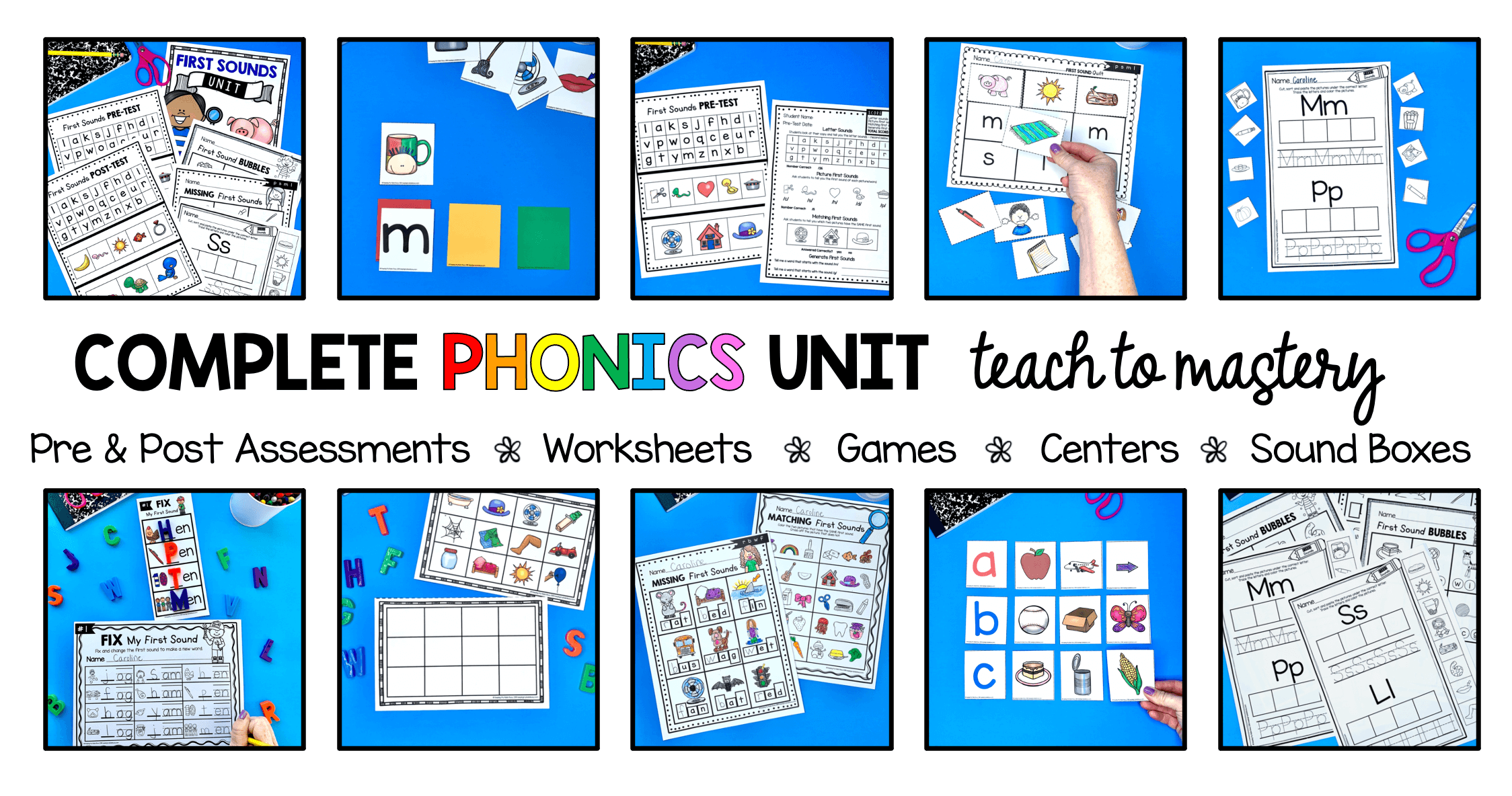
LET’S GET STARTED!
Like many of my units, I keep this pack in a flexible 3-ring folder with page protectors.
I like being able to see all of the activities - no more digging through file cabinets!


This unit follows state standards as well as the common core standards:
CCSS.ELA-LITERACY.RF.K.2.D Isolate and pronounce the initial, medial vowel, and final sounds (phonemes) in three-phoneme (consonant-vowel-consonant, or CVC) words.1 (This does not include CVCs ending with /l/, /r/, or /x/.)
CCSS.ELA-LITERACY.RF.K.2.E Add or substitute individual sounds (phonemes) in simple, one-syllable words to make new words.
CCSS.ELA-LITERACY.RF.K.3.A Demonstrate basic knowledge of one-to-one letter-sound correspondences by producing the primary sound or many of the most frequent sounds for each consonant.
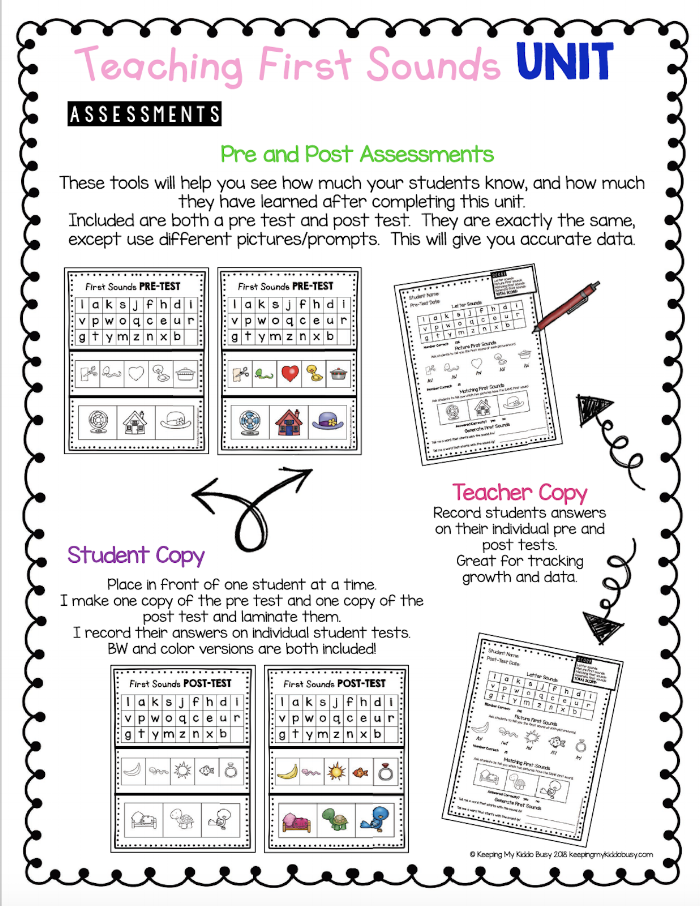
This unit comes with both pre and post assessments.
I administer the tests 1:1 and give students a laminated color copy. I record their answers on the BW copy.
The test covers both phonological awareness (letters and sounds) and phonemic awareness (just sounds associated with pictures/words - no letters.)
Please note: the test does NOT cover substituting initial sounds, but you can add this orally.
Your kiddos will have so much fun learning and mastering first sounds with this unit.
You will love that all of the planning is done for you, and there is very little prep work involved.
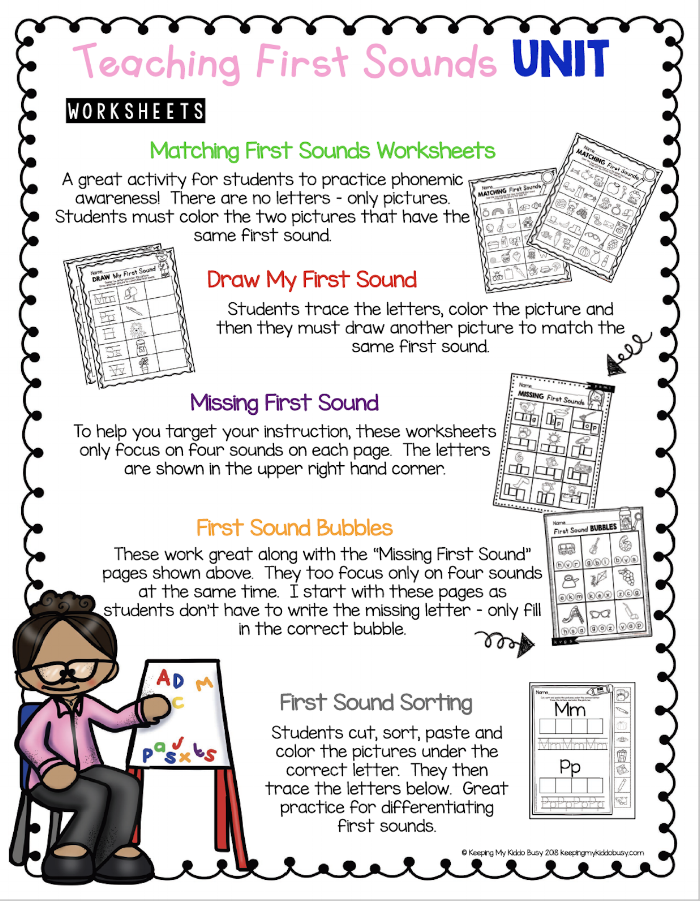
I start the year with a lot of phonemic awareness and whole group activities. Kids love it when you use their names, so this is a natural place to start. For example, I might start with a name game.
"Brayden, Brayden /b/ /b/ /b/ Brayden starts with /b/"
Who else has a name that starts with the /b/ sound?
"Bailey, Bailey /b/ /b/ /b/ Bailey starts with /b/"
Then you can pull out these alphabet and picture cards to use in a pocket chart.
There are so many games we like to play with these cards.
HOW ACTIVITIES ARE ORGANIZED
I organized this unit so it is easy for you to implement.
Depending on the reading program your district may require you to follow, there are so many different "orders" to teach letter sounds.
This unit can be used to teach letters and sounds on its own, or you can use the activities as a supplement to any program you’re already using.
Four different activities target the exact same four sounds. Shown above are the /p/ /s/ /m/ /l/ activities.
These letters are labeled in the corner of each printable to help keep you organized.
Over the course of one week students master these four new sounds after completing these activities.
Each week the letters change but the activities stay the same. This will save you so much time not having to explain directions and expectations.
Activities include first sound bubbles, missing first sounds, first sound sorting and first sound quilts.
Hands on, systematic instruction that will have your kiddos fluent with their sounds in no time.
We generally start with letters such as /p/ /s/ /m/ /l/ because they have such distinct, easy sounds for kiddos to pick up on.

Once they know two letters/sounds, we do the first sound sorting pages. I love these because they only have to differentiate between TWO sounds/letters at once.
I model the activity the first time for them, and after this they catch on super quick and really enjoy completing these pages.
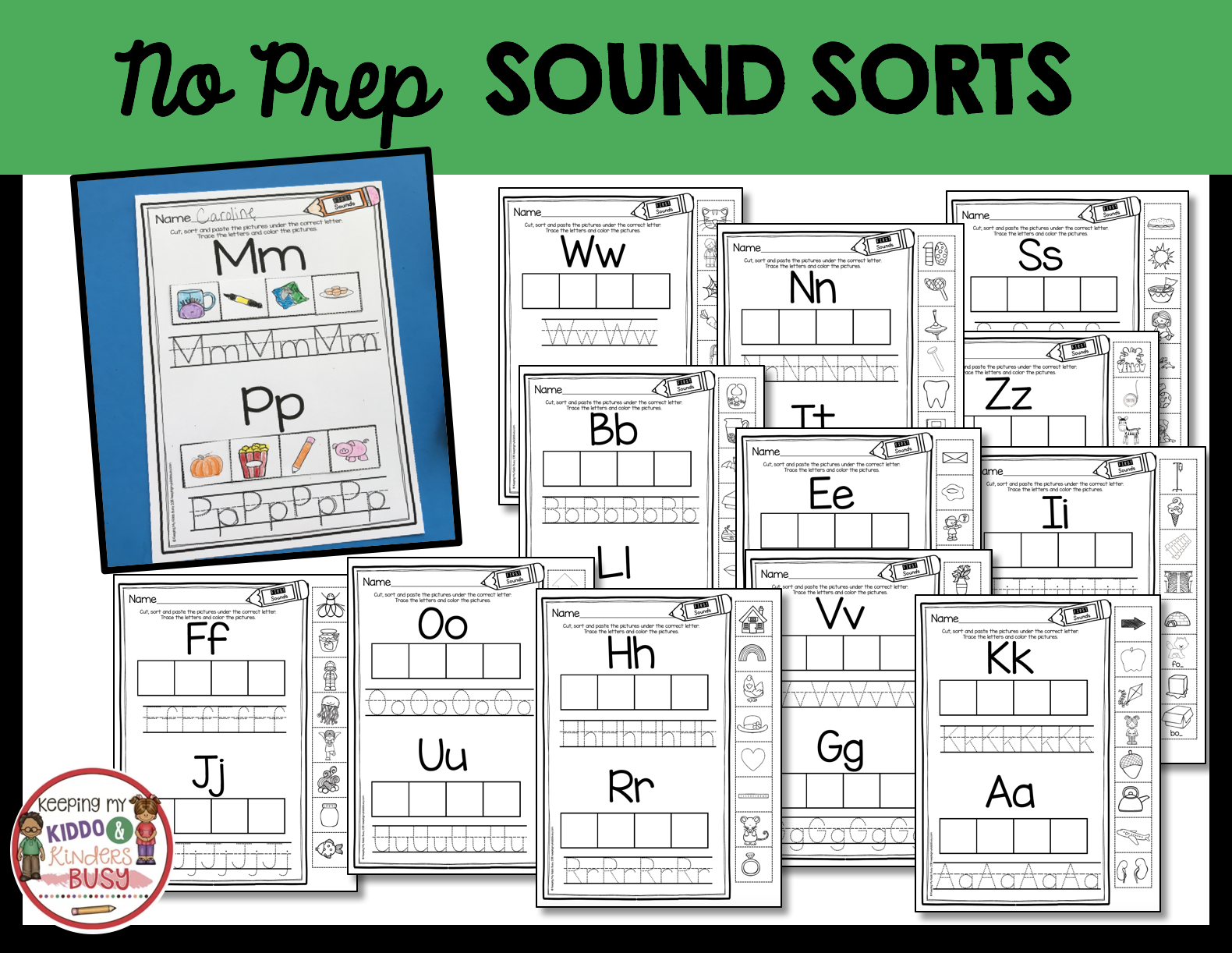

These pages also fit nicely with any reading program as you can use them in any order you wish.
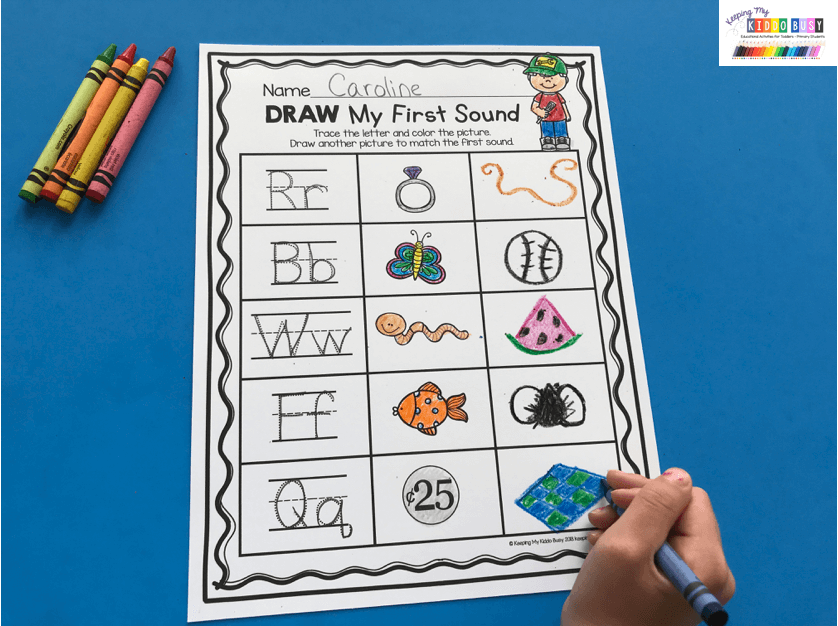
Once my kiddos know a few sounds, I also start using the Draw My First Sound activity pages.
On these worksheets, they trace the letters and then I give them one picture/example. This activates their schema so they aren't totally grasping at straws. They then have to generate an answer on their own and draw a picture of something that starts with the same first sound.
I also like using the matching first sound pages for additional phonemic awareness activities. This is an awesome quick assessment tool to see if the kids can actually hear and know what first sounds are. This only addresses phonemic awareness as they are not using letters - only sounds. You can start with these pages or use them as intermittent review.